Selecting the right worktop for your kitchen is a pivotal decision, as it significantly influences both the aesthetics and functionality of your space. Two popular materials that often come into consideration are Quartz and Wood.
Both offer distinct characteristics, advantages, and considerations. In this comprehensive comparison guide, we will explore Quartz and Wood worktops to help you make an informed choice for your kitchen project.
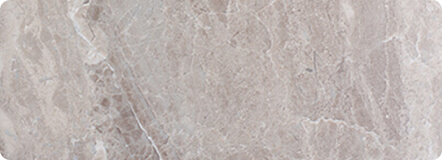
Quartz worktops are engineered stone surfaces primarily composed of crushed natural quartz crystals mixed with resins, pigments, and other additives.
The exact composition can vary among manufacturers, but quartz countertops typically contain around 90-95% crushed quartz and 5-10% resin. This engineered composition ensures uniformity in colour and pattern.
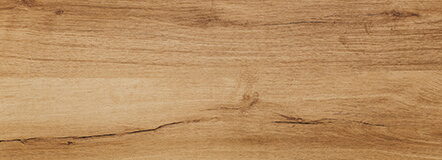
Wood worktops are crafted from solid wood, with common wood species including oak, beech, maple, and walnut.
The choice of wood can significantly impact the appearance and durability of the worktop.
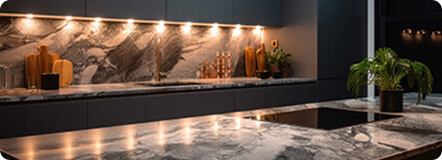
Wide Variety: Quartz worktops offer an extensive range of colour and pattern options, including solid colours and designs that mimic natural stones like marble and granite.
Consistency: Engineered quartz provides a consistent appearance, making it easier to match and install multiple slabs seamlessly.
Customization: Manufacturers can control the final look of quartz, allowing for customised designs and patterns.
Natural Look: Some quartz designs aim to replicate the natural beauty of stone but may not capture the depth and texture of natural materials.
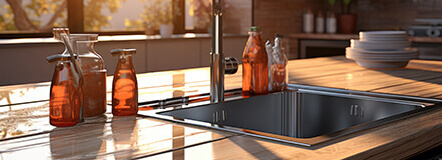
Warm and Natural: Wood worktops provide a warm and inviting aesthetic with a timeless appeal.
Unique Grain Patterns: Each piece of wood is unique, and worktops showcase distinctive grain patterns and colour variations.
Ageing Gracefully: Over time, woodworktops develop a natural patina, adding character and depth to the surface.
Vulnerability: Wood can be susceptible to scratching, staining, and warping if not properly cared for.
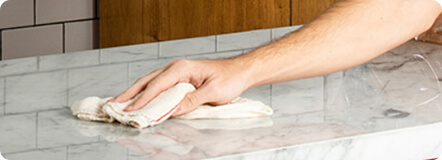
Durability: Quartz is highly durable, and resistant to scratches, chips, and stains due to its engineered composition.
Non-Porous: Quartz worktops are non-porous and less likely to absorb liquids or harbour bacteria.
Low Maintenance: Quartz requires minimal maintenance, usually limited to regular cleaning with mild soap and water.

Durability: Wood worktops are durable but can be more prone to scratches and dents than quartz.
Porous: Wood is porous and can absorb liquids, making it vulnerable to staining and bacterial growth.
Regular Maintenance: Wood worktops require regular sealing and oiling to maintain their appearance and prevent drying or cracking.
Vulnerability to Heat: Wood is susceptible to heat damage, so hot pots and pans should not be placed directly on the surface.

Cost Range: Quartz worktops typically fall within a moderate to high price range, influenced by the brand, design, and slab thickness.
Installation Costs: Installation costs for quartz are usually reasonable, as the material is consistent and easier to work with.
Long-Term Value: The durability and low maintenance of quartz can make it a cost-effective choice over time.

Cost Range: Wood worktops can vary widely in price, depending on the type of wood, thickness, and finish.
Installation Costs: Installation costs for wood may be slightly lower due to the ease of cutting and fitting.
Longevity: Wood worktops can have a long lifespan if properly maintained, contributing to long-term value.

Environmental Concerns: The production of quartz worktops involves the use of resins and other chemicals, raising some environmental concerns.
Sustainability Efforts: Some manufacturers are working to reduce the environmental impact of quartz production by using recycled materials and eco-friendly resins.
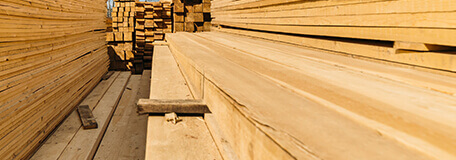
Sustainability: Wood worktops can be a sustainable choice if sourced from responsibly managed forests and certified as such.
Renewable Resource: Wood is a renewable resource, and the use of reclaimed wood or certified sustainable wood can further reduce its environmental impact.
Carbon Sequestration: Wood has the unique property of sequestering carbon, helping to reduce greenhouse gas emissions when compared to other materials.

Easier Installation: Quartz is typically easier to install due to its consistent thickness and uniformity.
Minimal Seams: The seam visibility is often reduced with quartz, creating a cleaner look in larger installations.
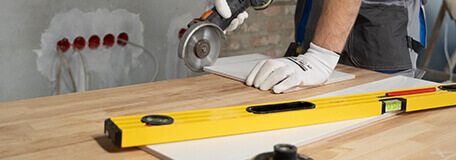
Precision Required: Installing wood worktops demands precision due to the natural variations in the material.
Skilled Craftsmanship: Experienced professionals are often necessary to ensure a seamless installation and proper finishing.
Choosing between Quartz and Wood worktops depends on your specific needs, preferences, and kitchen design. Here’s a summary to help you decide:
Topsco, a reputable supplier of kitchen worktops, offers great Quartz worktop options to cater to your specific requirements. They can provide expert guidance to help you choose the suitable material and ensure a seamless installation process.
Whether you opt for the elegance of Quartz or the warmth of Wood, your kitchen will benefit from the addition of these high-quality worktops.
Check out our next guide where we compare Quartz and Stainless Steel Worktops.
Copyright © Topsco
Developed by TyMedia